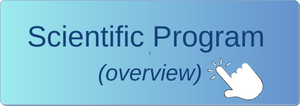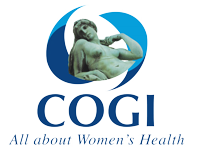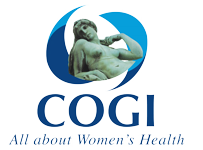Scientific Program – FETOMATERNAL MEDICINEFriday, November 28 & Saturday, November 29, 2025 |
 |
Friday, November 28
| 08:30-09:00 | GOOD MORNING ROME PLENARY LECTURE | Live streamed from HALL A |
| Capsule | A decade ago, a pioneering procedure was successfully launched | |
| Chairpersons | Zion Ben Rafael, Israel Rene Frydman, France |
|
| 08:30-08:25 | Pioneering uterus transplantation: Reflections on breakthroughs and deliveries Mats Brännström, Sweden |
|
| 08:25-08:30 | Discussion | |
| 09:00-10:00 | PREGNANCY IMPACT IS MORE THAN 9 MONTHS | HALL D |
| Chairpersons | Gian Carlo Di Renzo, Italy Gerard Visser, Netherlands |
|
| 09:00-09:20 |
Developmental origins of health and disease (DOHaD) hypothesis: Current state and implications for ART |
|
| 09:20-09:40 | Can we blame pregnancy complications in the development of Autism Spectrum Disorder (ASD)? Eyal Sheiner, Israel |
|
| 09:40-10:00 |
The health of children conceived by ART: The chicken or the egg? |
|
| 10:00-10:30 | Coffee break, visit the exhibition, and e-poster viewing |
| 10:30-12:00 | PRETERM DELIVERY | HALL D |
| Chairpersons | Giuseppe Rizzo, Italy Gian Carlo Di Renzo, Italy |
|
|
10:30-10:50 10:30 |
Debate: The role of routine cervical length screening in low-risk pregnancies – should universal screening be standard, or should it be reserved for high-risk groups? To all: Rinat Gabbay Ben Ziv, Israel |
|
| 10:50-11:10
10:50 |
Debate: Mg sulfate administration when preterm delivery is expected in less than 2 hours Yes: Liran Hiersch, Israel |
|
| 11:10-11:25 |
Antenatal corticosteroids – what is the optimal timing? |
|
| 11:25-11:40 |
Evidence based data – ultrasound based cerclage – to whom? |
|
| 11:40-12:00
11:40 |
Debate: Should we provide corticosteroids for late preterm (35-37 weeks)? Yes: Howard Berger, Canada |
|
| 12:00-12:05 | Short break |
| 12:05-13:05 | INDUSTRY SUPPORTED SESSION | HALL A |
| 13:05-14:00 | Lunch break, visit the exhibition, e-poster viewing, and moderated e-poster sessions |
| 14:00-15:00 | INDUSTRY SUPPORTED SESSION | HALL A |
| 15:00-15:05 | Short break |
| 15:05-16:35 | LABOR AND DELIVERY | HALL D |
| Chairpersons | Giuseppe Rizzo, Italy Eyal Sheiner, Israel |
|
| 15:05-15:25 | New aspects of labor monitoring including US in labor Giuseppe Rizzo, Italy |
|
| 15:25-15:45
15:25 |
Debate: Should we provide antibiotics after operative vaginal delivery? Yes: Emmanuel Attali, Israel |
|
| 15:45-16:00 |
Introduction of the US machine in the labor ward: Pros and cons |
|
| 16:00-16:20
16:00 |
Debate: Should women with previous 3rd degree tear undergo vaginal delivery Yes: Daniel Gabbai, Israel |
|
| 16:20-16:35 |
Controversies in screening for fetal macrosomia at term |
|
| 16:35-17:00 | Coffee break, visit the exhibition, and e-poster viewing |
| 17:00-18:30 | OBESITY, DIABESITY | HALL D |
| Chairpersons | Yariv Yogev, Israel Gerard Visser, Netherlands |
|
| 17:00-17:20
17:00 |
Debate: Should we counsel overweight/obese patients to lose weight during pregnancy? Yes: Gerard Visser, Netherlands |
|
| 17:20-17:40
17:20 |
Debate: Should we screen and treat GDM prior to 24 weeks of gestation? Yes: Gerard Visser, Netherlands |
|
| 17:40-18:00 |
Myo Inositol preventing and treating GDM |
|
| 18:00-18:20 |
The management and attitude for the obese patient in the delivery ward |
|
| 18:20-18:30 |
Discussion |
|
Saturday, November 29
| 08:30-10:00 | GOOD MORNING ROME PLENARY LECTURE | Live streamed from HALL A |
| Capsule | ||
| Chairpersons |
Bart Fauser, Netherlands |
|
| 08:30-08:55 |
Endometriosis before and during pregnancy |
|
| 08:55-09:00 | Discussion | |
| 09:00-10:30 | ADVANCED MATERNAL AGE | HALL D |
| Chairpersons | Fabio Facchinetti, Italy Anna David, UK |
|
| 09:00-09:20 |
When you are too old to rock the cradle? Is there a difference between singleton and twins? |
|
| 09:20-09:40
09:20 |
Debate: Should all women over the age of 40 undergo caesarean section? Yes: Amir Aviram, Canada |
|
| 09:40-10:00
09:40 |
Debate: Should we induce all labor in advanced maternal age? Yes: Ilenia Mappa, Italy |
|
| 10:00-10:20 |
Long term health of women and neonates after delivery after the age of 40 |
|
| 10:20-10:30 | Discussion | |
| 10:30-11:00 | Coffee break, visit the exhibition, and e-poster viewing |
| 11:00-12:30 | GENETICS AND PRENATAL DIAGNOSIS | HALL D |
| Chairpersons | Antonio Novelli, Italy Antonio Pizzuti, Italy |
|
| 11:00-11:20 | Non invasive prenatal testing – is it a good option for women after assisted reproduction and for which indications? Antonio Novelli, Italy |
|
| 11:20-11:40 |
In utero gene therapy – a new horizon? |
|
| 11:40-12:00
11:40 |
Debate: Should we perform array-based comparative genomic hybridization and whole exome sequencing for all Yes: Amir Aviram, Canada |
|
| 12:00-12:20 |
What is the value of genetic testing in small babies |
|
| 12:20-12:30 |
Discussion |
|
| 12:30-13:30 | Lunch break, visit the exhibition, e-poster viewing, and moderated e-posters |
| 13:30-15:00 | MULTIPLE PREGNANCY: THE MONOCHORIONIC TWIN CHALLENGE | HALL D |
| Chairpersons | Nir Melamed, Canada Asma Khalil, UK |
|
| 13:30-13:45 |
New aspects in the diagnosis and management of MC twins |
|
| 13:45-14:00 |
Fetal growth restriction and significance of size discordance in twins |
|
| 14:00-14:20
14:00 |
Debate: Should we use twin specific growth charts to diagnose IUGR in twins? Yes: Gerard Visser, Netherlands |
|
| 14:20-14:40 |
Optimal dating and timing of birth in twin pregnancy |
|
| 14:40-15:00 | Controversies in preterm birth in twins Asma Khalil, UK |
|
| 15:00-16:30 | ULTRASOUND AND DOPPLER IN NORMAL PREGNANCY | HALL D |
| Chairpersons | Asma Khalil, UK Nir Melamed, Canada |
|
| 15:00-15:20
15:00 |
Debate: First-trimester vs. second-trimester anatomy scan: Should we be pushing for earlier detection? Is a detailed first-trimester scan at 11-13 weeks sufficient, or do we still need a second-trimester scan? Yes: Roee Birnbaum, Israel |
|
| 15:20-15:40
15:20 |
Debate: The role of Middle Cerebral Artery (MCA) Doppler in low-risk pregnancies – Should MCA Doppler be incorporated into routine fetal surveillance? Yes: Asma Khalil, UK |
|
| 15:40-16:00
15:40 |
Debate: Third anatomy scan to all? Yes: Asma Khalil, UK |
|
| 16:00-16:20
16:00 |
Debate: Should we abandon the Biophysical Profile (BPP) in favor of Doppler-based surveillance? Is BPP still useful, or should we rely primarily on Doppler? Yes: Diogo Ayres De Campos, Portugal |
|
| 16:20-16:30 |
Discussion |
|



